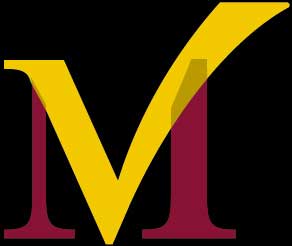In Greece today people start from an a priori assumption of the “Greek identity of Macedonia as an obvious historical fact”. Identifying the Greeks from the ethnic and linguistic point of view with the ancient Macedonians, the current Greek regime accuses “Skopje” of encroaching upon the name Macedonia and on a part of a cultural heritage which belongs only to the Greeks. In fact this is nothing more than their conviction which for years now has been handed out to young people in Greek schools from their earliest years and, most recently, has been propagated throughout the entire world. The thesis of the “Greek identity of Macedonia” is not scientifically supportable. We shall concentrate here on the earliest period.
In Greek scholarship, in numerous articles and books, the historical facts which go against the thesis of a “Greek Macedonia” are passed over. It is universally known that the classical Greek authors did not recognize the Macedonians as their fellow-countrymen, calling them barbarians, and they considered Macedonian domination in Greece as an alien rule, imported from outside by the members of other tribes, the, as Plutarch says, allophyloi. This historical right and this “Greek identity of Macedonia” have for a long time been “proved” with the hypothesis that the ancient Macedonians were a Doric tribe and their language a Doric dialect. Since this could not be supported by definite facts from historical sources, and even less by archaeological or linguistic proofs, not long ago official Greek scholarship discarded this hypothesis. After the deciphering of Linear B in 1952, and more particularly after 1970. when the luxurious edition of The History of the Greek Ethnos’ was published, Greek linguists and historians went far into the past to seek for foundations for their thesis of a “Greek Macedonia”. Although none of the Mycenaean scholars in the world takes seriously their hypothetical interpretations of Mycenaean texts, they nevertheless wish to discover in them “proofs” that the ancient Macedonians were Indo-Europeans, Proto-Hellenes, and that their language was the oldest, purest and most conservative Greek dialect which at the same time cast a new light on the oldest history of the Greek ethnos. This thesis reached its culmination at the beginning of the 1980’s when an unusual jubilee under the title of “4,000 Years of Greek Macedonia” was celebrated with great pomp. The theory thus constructed has pretensions to scholarship but in fact starts out from pre-suppositions which are not supported by a single historical fact.
The history of the ancient Macedonians over a lengthy period of 1,600 years (2,200-600 B.C.) has been reconstructed on the basis of a prejudgment that they could have been nothing other than Greeks. It should be noted that no text whatsoever has been preserved in the ancient Macedonian language. Only about a hundred glosses are known, from which it is not possible to reconstruct the language. For more than 150 years these words have been a subject of comparative linguistic studies, but quite a large number of these remain with only a hypothetical explanation or even with no explanation at all. While earlier on Doric forms were being sought in the Macedonian glosses, Greek linguists are now investing great efforts in revealing archaic Aeolian. Arcado-Cypriot and Mycenaean parallels. In fact the sparse linguistic material is extremely complex and heterogeneous. It is clear that among the glosses there are borrowings from Greek which in antique times was a language of great prestige; the Greek words, however, have been adapted according to a different, non-Greek phonetic system, [e.g.: Macedonian ade “sky”, Greek aither “air”; Mac. danos, Gk. thanatos “death”; Mac. keb(a)]le Gk. kephale “head”, etc.] But at the same time there are among the glosses such words as are not found in Greek but have parallels in other Indo-European languages, [e.g.: aliza “a white layer under the bark of a tree”, Slavonic e/oa xa; Mac. goda “innards”, Gk. entera, Old Indian Sanskrit gudam “intestine”; Mac. pella “stone”, Germ. Fels < + pel-sa, etc.] As proof of the cognation of the ancient Macedonians with the Greeks a photograph has been presented of the inscription from Vergina with Greek names. It should be mentioned that the majority of the names of Macedonians from the ancient period are those of members of the ruling dynasty or the aristocracy who consciously identified with the sphere of Hellenic culture so that it is in no way strange that the names of the majority of them are Greek. But alongside them are to be found Macedonian names which cannot be explained by means of Greek etymology.
With regard to their religion which, it is maintained, was the same as that of the Greeks, it should be borne in mind that the names of the divinities were translated into Greek in accordance with their functions, just as the names of the Greek divinities were altered by Roman authors writing in Latin: Jupiter in place of Zeus, Minerva for Athena, Venus for Aphrodite, etc. From an analysis of the ancient Macedonian glosses it can be concluded that ancient Macedonian was an Indo-European language distinct from Greek. The well-known French Indo-European scholar A. Meje says that Greek is no closer to ancient Macedonian than is any other Indo-European language. In his classification of the Indo-European languages, J. Pokorny with complete justification puts Macedonian together with Phrygian in his Indo-European etymological dictionary. In support of the thesis that the ancient Macedonians were Greeks it is stressed that Philip II and Alexander the Great not only behaved as Greeks but were incarnations of the idea of a united Greek state. The state which was ruled by Philip II and Alexander the Great, who subdued the Greek city-states and extended their frontiers to Central Asia, is nowhere called a Greek state. Educated by the great Greek philosopher Aristotle, Alexander highly valued classical Greek education and spread it to Central Asia. He abandoned, moreover, the dogma of the “difference” between Greeks and barbarians. He introduced into his policy a new spirit of the equality of all peoples, a spirit alien even to his teacher, who had prepared him for leadership of the Greeks and mastery of the barbarians. In accordance with his cosmopolitan ideology, Alexander showed an extraordinary broad mindedness both towards the Greeks and towards the other Balkan and Asiatic peoples. With this approach he laid the foundations of Hellenism too, which was a mixture of Greek philosophic and educational ideas with the cultural and religious understandings of the peoples of the east. Alexander spread Hellenism in the Greek language, which he considered to be the language of culture, but his mother tongue was not understood by the Greeks: a fact of which there are explicit proofs.”)
Greek scholarship passes over with an underestimation the historic fact of the migration of peoples which fundamentally redrew the ethnic map of Europe, and especially of the Balkans, during the early Byzantine period. Macedonia has been represented as a buffer protecting Hellenism from the waves of the barbarians throughout the centuries. The Slavonic element in Greece is either denied or minimized and it is well known that the Byzantine historian Constantine Porphyrogenitus openly says that the whole of Hellas had been Slavicized – It is likewise a known fact that the Slavonic tribes of the Ezerites and the Milingi were independent in the Peloponnese in the 7th and 8th centuries and did not pay tribute to Byzantium. If such facts are borne in mind, it is not difficult to understand whether Macedonia at that period was really a “bastion of Hellenism”.
There have been protests in Greece that we have not used toponyms from the Aegean part of Macedonia in the forms which were given to them by decree after 1913 and more especially in 1926 because this has called Greek sovereignty into question. Demelios Georgakas” notes that even today in the Peloponnese no matter in which direction one moves one cannot go three miles without encountering a Slavonic place-name. Similar statements have been made by Ph. Malingudis. If there are so many Slavonic place-names in the Peloponnese, how many more are there in the Aegean part of Macedonia where the Slavonic tribes dwelt? And today Slavs have been living there for a period of 1,400 years. What is more natural than that the Balkanized Slavs who have lived so long and continuously in Macedonia should be called Macedonians and their language Macedonian. During the period of Thucydides (11, 99) the population of Northern (Upper) Macedonia was distinguished from the Macedonian conquerors; but even those from Upper Macedonia were likewise called Macedonians. It is very unscholarly to speak of a homogenization of just one nation in these regions of the Balkans.

Virtual Macedonia
Republic of Macedonia Home Page
Here at Virtual Macedonia, we love everything about our country, Republic of Macedonia. We focus on topics relating to travel to Macedonia, Macedonian history, Macedonian Language, Macedonian Culture. Our goal is to help people learn more about the "Jewel of the Balkans- Macedonia" - See more at our About Us page.
Leave a comment || Signup for email || Facebook |
History || Culture || Travel || Politics














